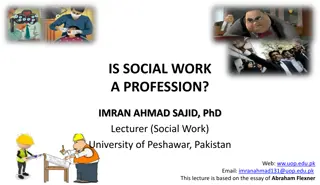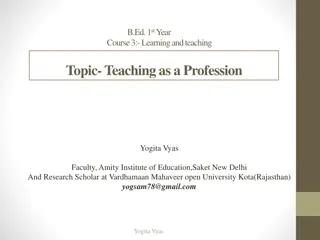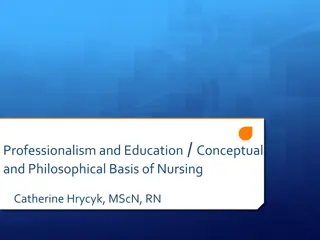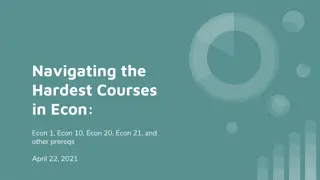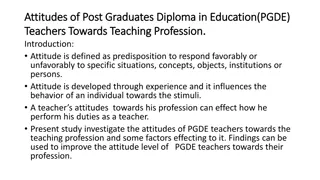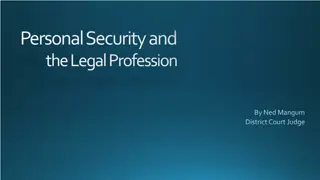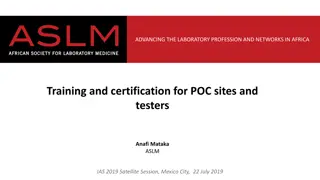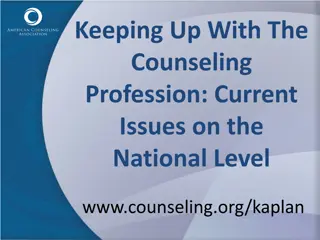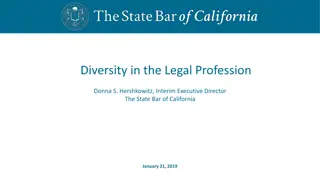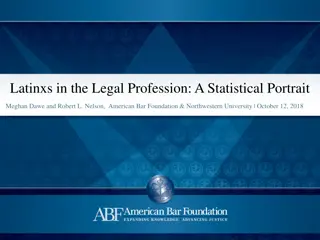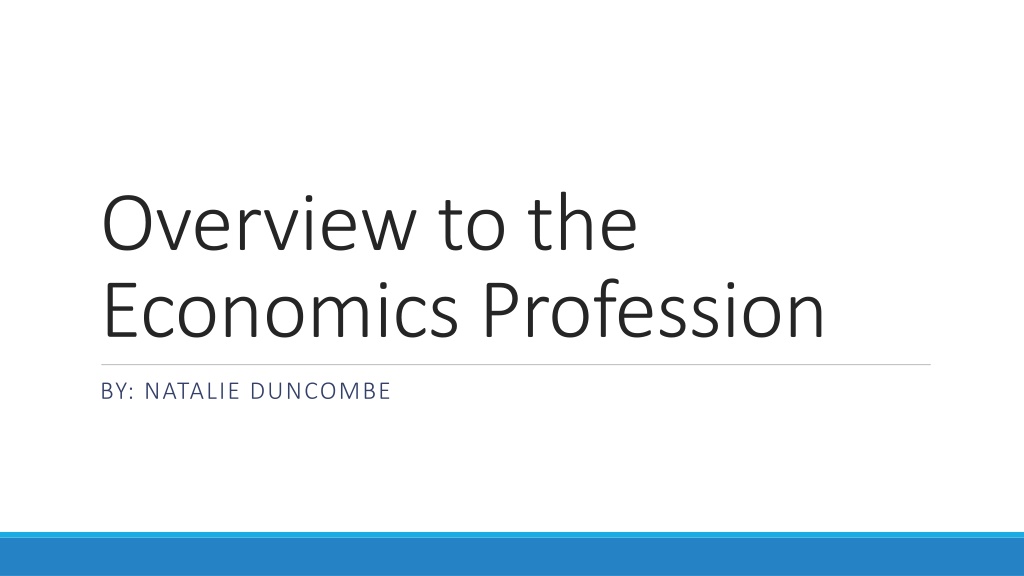
Choosing a Career in Economics: Insights and Prospects
Explore the world of economics with insights on pursuing a PhD, evaluating reasons for entering the field, determining if economics is the right fit for you, and understanding job market prospects. Discover different types of economist jobs in public and private sectors.
Download Presentation

Please find below an Image/Link to download the presentation.
The content on the website is provided AS IS for your information and personal use only. It may not be sold, licensed, or shared on other websites without obtaining consent from the author. Download presentation by click this link. If you encounter any issues during the download, it is possible that the publisher has removed the file from their server.
E N D
Presentation Transcript
Overview to the Economics Profession BY: NATALIE DUNCOMBE
Why a PhD in Economics? You should never forget that the purpose of a Ph.D. program in economics is to train you in the profession of economic research. Put differently, a Ph.D. program in economics is meant to train you to become a research professor in economics. It is not meant to train you to be a quant jock on Wall Street or a policy maker in Washington. - Stuart J. Hillmon, Getting a PhD in Economics
Good and Bad reasons for doing a PhD Bad Good You're generally smart and did well in school but you don't know what to do next with your life. You want to do economic research, you have questions you're interested in answering, and you have ideas about how to answer them. You can't find a job, and it's a good holding pattern until you can get one (plus, you can get a master's degree in economics, which is as good as an M.B.A.). You want to teach economics at the university level. You want to make lots of money. You want to work in public policy and save the world. Source: Getting a PhD in Economics by Stuart Hillmon
Figuring out if Economics is right for you 1. What types of questions do they answer? Economists are not just experts but creators of economic knowledge. Economists cover all aspects of the domestics and international economy, what are you drawn to? 2. Where do economists work? Academia Public Policy and Government Private Sector 3. Why is their work important? Does that correspond with your goals?
Job Market Prospects From 2016 AEA job listings: U.S. Jobs (929) Full-Time Academic (596) Restricted by field, level of experience Other Academic, Part-time or Adjunct (13) Other Academic, Visiting or Temporary (96) Full-Time Nonacademic Positions (224) Federal Reserve and other Government Agencies Consulting and other private companies like Amazon International Jobs (465) Median Income 120K (men), 80k (women) Around 300 candidates graduating each year from top 15 schools About 1,000 PhDs granted by US institutions in 2015 Low unemployment, even in recessions Sources: U.S. Census, https://www.aeaweb.org/joe/listings.php
Types of Economist Jobs Public Institutions Federal and State Government Can be considered as academically prestigious as some positions in academia Able to see effects of research in action and more tangibly serve common good Private Sector Banks, Finance, Consulting, and other Corporations Offer more competitive benefits Can offer more fast paced environments, but not always as mission focused Academia Research Institutions Often considered the most prestigious jobs, especially those at top research institutions Advancement focuses on research production, teaching generally a secondary consideration Tough competition to receive tenure, but good job security if you get it Academia Teaching Institution Advancement weights research and teaching contributions equally Job Market Candidates usually apply to all of the above then chose their best option
Where do Economics PhDs graduate from? 10 Largest Programs Rank School # of Graduates 122 U.S. PhD granting institutions in the IPEDS data 1 Stanford University 29 2 University of Chicago 28 3 University of Michigan 27 17% of graduates went to a top 10 school* 4 University of Wisconsin 27 5 UCSD 25 6 University of Minnesota 25 39% of graduates went to a top 25 school* 7 Boston University 24 8 Columbia University 24 9 Princeton University 21 10 New York University 21 *based on U.S. News Ranking Source: NCES IPEDS, based on 2015 graduates
Considerations: Gender and Racial Disparities in Economics
Consequences of Gender Disparity Some highlights from Diversity in the Economics Profession: a New Attack on an Old Problem by Amanda Bayer (Swarthmore, and visiting R&S) and Cecilia Elena Rouse Economics has the largest gender gap in tenure rates, salaries, and job satisfaction compared to other math-intensive fields. Reported 20% gender gap in achieving tenure and 50% gap in promotion to full professor (social sciences overall are 12% and 25%). Women account for 13% of authorships in economics since 1990. An additional coauthored paper for a man has the same effect on the likelihood of tenure as a solo- authored paper, women suffer a significant penalty for coauthoring, especially when their coauthors are men (Sarsons 2015). Link: http://pubs.aeaweb.org/doi/pdfplus/10.1257/jep.30.4.221
Low Minority Representation Note: Gaps to 100% represent other , should probably fix
Things to consider Positives Negatives Economics is really interesting Things probably won t change quickly Good work life balance Possible lower job satisfaction, frustration Strong job market prospects Isolation High median pay, despite the gap You have to be better to get to the same place Resources might not be available in your workplace, but there are national resources such as through the AEA s Committee on the Status of Women in the Economics Profession and Committee on the Status of Minority Groups, and the American Society of Hispanic Economists (ASHE) Can t expect support or acknowledgement of gender divide (from either gender) - There seems to be greater hostility or at best indifference to the problems that women in particular face in the economics profession, perhaps because economic theory finds it very difficult to explain continued discrimination against any group if it entails a productivity cost Stuart Hillmon
Things to consider Will positives outweigh negatives? What individual actions can you take to minimize the negatives and maximize the positives? Chose programs where you will be successful, not just based on ranking Reach out to mentors and look for external support Give yourself maximum flexibility when you enter the job market Really hone your passion for research What conditions will you have to accept as immutable? How important do you think this will be? If you are not promoted, will your work still be satisfying? If it is hard for you to publish, will your work still be satisfying? If you end up as the only person like you in your department or section, will you have external support?


